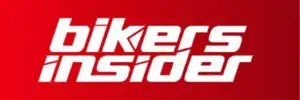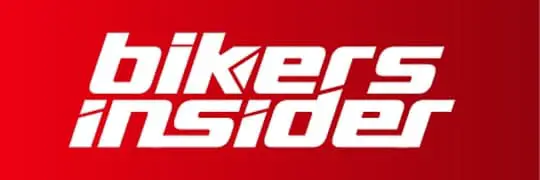Content
As you https://www.xcritical.com/ progress towards seniority, the only difference is that the partners can earn a substantial percentage of the firm’s profit or loss so that the bonus amount can be estimated beforehand. Amongst the trader role, the career progression in a Prop firm will be as follows. Quant Strategist usually develops and designs mathematical models for formulating strategies and trading algorithms. They only focus on modeling specialties like risk mitigation, predatory tactics, and optimal liquidation.
Step 5 – Regulation and compliance
They employ advanced statistical proprietary desk techniques to analyze market data, devise trading strategies, and manage risk. Programmatic trading desks use advanced algorithms and real-time bidding to buy and sell ad inventory across multiple platforms. Still, it has the edge over them for two Parameters (1) Faster progression (2) No stock-based compensation or deferred bonuses, only cash payments.
What is the approximate value of your cash savings and other investments?
- The strategic approach adopted by traders within the realm of prop desk trading often involves the utilization of advanced and sophisticated methodologies, far beyond those typically accessible to the average investor.
- The automated trading software can calculate Option Greeks, quote bid/ask spread, and input the market data.
- This evolution has shaped the landscape of proprietary trading, presenting both opportunities and challenges for those involved.
- Proprietary trading firms start believing that access to unique and valuable information gives them an edge over others, and they can reap huge profits.
- The proprietary trading divisions in the banks functioned as internal hedge funds within the bank.
- Although this term is mostly used in advertising and media buying, it’s being adopted in financial trading too, symbolizing the transition towards increased automation in trade execution.
- The trajectory of proprietary trading desks is likely to be sculpted by the convergence of technological advancements, shifting regulatory landscapes, and prevailing market trends.
There are many different types of trading desks, depending on the security being traded. Oftentimes, these desks are separated and may be located at certain central exchanges. Trading desks are manned by licensed traders who specialize in a given investment type, such as equities or commodities. These traders primarily use electronic trading systems and market makers to identify the best prices for their clients. The future of Trading Desks will be shaped by increased automation and AI, the integration of blockchain and cryptocurrencies, and the rising trend of sustainable and socially responsible trading.
Why Do Firms Engage in Proprietary Trading?
Trading desks generate an income by charging a commission on trades they transact. For example, a hedge fund may deal through an equity trading desk at an investment bank and pay a modest fee for each trade. In some cases, brokers may operate their own trading desk by being the counterparty for their client’s trades. These trades may never reach the interbank market and may stay within the confines of the broker’s own liquidity pool. A trading desk is a physical location where transactions for buying and selling securities occur.
Prerequisites to setting up a Proprietary Trading Desk
Unfortunately, a prop trading firm wouldn’t have any legal recourse due to the lack of regulation. Index Trading, or “Index Arb”, seeks profits from the difference between the stock’s actual price and the estimated future price of the same stock. The ones who react to the market instantly are known as Leaders, and the others are known as Laggards. A proprietary trader must identify the leaders and laggards and the opportunity to earn profits if he believes that laggards can overtake the leaders in the future. This statistical arbitrage strategy entails purchasing the lower-priced index and selling off the higher-priced index until the price returns to equilibrium. Global Macro trading strategy focuses on several macroeconomic and geopolitical events worldwide.
Prop firms can help skilled individuals propel their trading careers by providing capital, training, and general support. A proprietary trading firm is an entity which invests its own money in a particular financial instrument or combination of financial instruments. One can work in a proprietary trading firm with some knowledge about trading practice, a good educational background and some skills. It’s important to recognise that both working at a proprietary trading firm and owning one come with their own set of challenges and risks.
Another major benefit that proprietary trading has is that it enables the firms to stock up the shares of the companies as inventory. The firms can then sell the stocked up shares to their own clients who wish to purchase them, making a profit in the process. Complying with these regulations poses significant challenges for trading desks. They must keep up with the changing regulatory landscape, implement robust compliance systems, and train their staff to adhere to regulatory requirements.
Examples of well-known proprietary trading firms include Jane Street, Tower Research Capital, and DRW Trading. These firms are known for their rigorous hiring processes, often seeking candidates with strong quantitative and technical skills. Whereas, for setting up an algorithmic trading desk, apart from a sound knowledge of algorithmic trading, you will need infrastructure, platform, risk management practice, backtesting etc. These firms are known for their rigorous hiring processes, often seeking candidates with strong quantitative and technical skills.
This strategy requires a strict exit strategy as a large loss could eliminate many small gains achieved. They combine the roles of a salesperson and a trader, maintaining client relationships while also having a firm understanding of trading operations. Let us discuss the tips as well that can come in handy while setting up the trading desk ensuring a smooth and successful launch.
This desk is responsible for a portion of the financial institution’s revenues, unrelated to client work while acting autonomously. Volcker’s rule called for separating the Proprietary trading desks from the core banking activities. Less regulation and governance might mean lesser operating costs, but a prop trader has no regulatory norms to fall back upon. A bank can also enjoy speculative transactions as it is not accountable to the clients as a prop trader. Higher profits generated by prop trading translate to increases in annual and quarterly earnings of the parent financial institution.
Joining a capital allocation program does not always require extensive experience, as each program has its own specific set of requirements. A financial professional will offer guidance based on the information provided and offer a no-obligation call to better understand your situation. Our writing and editorial staff are a team of experts holding advanced financial designations and have written for most major financial media publications.
Explore some of these trading techniques in our Advanced Algorithmic Trading Strategies learning track which is developed in collaboration with leading industry experts. One of the more notable areas of arbitrage, called risk arbitrage or merger arbitrage, evolved in the 1980s. When an investment bank believes a buyout is imminent, it often sells short the shares of the buyer (betting that the price will go down) and buys the shares of the company being acquired (betting the price will go up). Traders and analysts need to provide regular reports to clients, senior management, and regulators. Traders use a variety of methods, including manual trading, algorithmic trading, or high-frequency trading, to buy and sell securities as efficiently as possible.
For instance, fixed income is a very broad category and can deal with anything from ultra-safe U.S. Larger investment banks may subdivide their trading desks to specialize in narrower categories within these main sectors. They also use machine learning to continuously improve trading strategies and risk management.
Failing to implement robust risk management practices to protect against significant losses. The views expressed in this material are solely those of the author and/or QuantInsti and Interactive Brokers is not endorsing or recommending any investment or trading discussed in the material. This material is not and should not be construed as an offer to buy or sell any security. It should not be construed as research or investment advice or a recommendation to buy, sell or hold any security or commodity. Since you can not raise the capital unlike hedge funds, you will have to dig into your own pocket. Thomas J Catalano is a CFP and Registered Investment Adviser with the state of South Carolina, where he launched his own financial advisory firm in 2018.
Financial institutions such as banks, hedge funds, and proprietary trading firms engage in proprietary trading. Many brokers also offer trading desks for their clients, especially in the foreign exchange market and equity day trading market. With the ability to instantly execute trades, these brokers set themselves apart from other brokers acting as intermediaries. Most large financial institutions have their own trading desks in place to assist their internal teams and external clients in placing orders.
Stay updated with market trends, conduct thorough research, and maintain detailed documentation of your trading activities. Stocking the inventory of securities for the future is another huge advantage of proprietary trading. Since the proprietary traders use their own fund’s capital, they can stock the securities for their speculative activities or market-making functions. They might hold securities with the expectation of future price appreciation or to hedge other positions. Since the proprietary traders use their own fund’s capital, they can stock the securities for their speculative activities or market-making functions.
They’re only concerned with identifying the current trading trends and acting upon them to earn maximum profits. If the principal trader is a crook, you might end up losing your entire capital. Not just this, a principal trader who lacks ethics and integrity might put the whole firm at risk.

